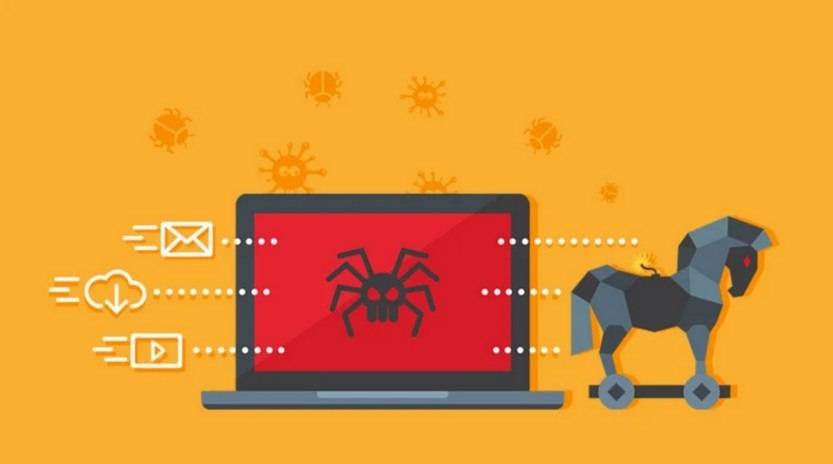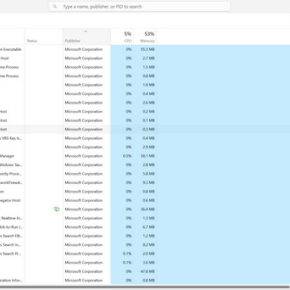Scammers are sending phishing emails from the address irs@gov-taxreturn.org pretending the emails are from the real Internal Revenue Service (IRS). However, this email address is completely fake and not associated with the real IRS in any way. The fraudulent emails aim to trick taxpayers into providing sensitive personal and financial information that can be used for identity theft and other scams. This article will explain how to detect these scam emails and avoid falling for them.
- What is the Fake irs@gov-taxreturn.org IRS Email Address Used in the Scam?
- How Does the Fake irs@gov-taxreturn.org IRS Email Scam Work?
- What is the Goal of the Scam irs@gov-taxreturn.org Emails?
- What to Do if You Got a Fake irs@gov-taxreturn.org IRS Email
- How to Spot and Report the Fake IRS Emails
- Conclusion

What is the Fake irs@gov-taxreturn.org IRS Email Address Used in the Scam?
The phishing scam involves emails being sent from the address irs@gov-taxreturn.org. Despite the domain name having “irs” and “gov”, this email address does not originate from the official Internal Revenue Service at all.
Scammers register domain names intended to sound legitimate, but it is completely unconnected to the real IRS. Any email from irs@gov-taxreturn.org is fraudulent.
How Does the Fake irs@gov-taxreturn.org IRS Email Scam Work?
These fraudulent emails with the fake IRS address may have subject lines such as “IRS Tax Notification” or “Tax Transcript Update Required.”
The content of the scam email falsely claims to be from an IRS agent following up regarding issues with your tax return or account, such as taxes owed, refund status, or required identity verification.
The message urges you to click on links or attachments to urgently resolve the supposed tax issue before penalties are enforced.
However, the real IRS never initially contacts taxpayers via unsolicited email to request personal information or conduct account business like this. Any such email claiming to be the IRS and demanding your sensitive data is always a fraudulent phishing attempt.
What is the Goal of the Scam irs@gov-taxreturn.org Emails?
The scammers send these fake IRS emails in mass quantities, hoping some recipients will fall for their urgent threats and click the links out of fear.
The links then take victims to phishing sites that prompt them to enter personal details like Social Security Number, bank account information, or credit card numbers under the guise of “verifying their identity.”
Once users submit it, the scammers steal the personal information to commit financial frauds or re-sell it on the dark web. No real IRS issue gets resolved.
Some victims also receive follow-up calls from other scammers pretending they can help fix the fictional tax problems…for a fee. The scammers share data and contacts to cast a wider scam net.
What to Do if You Got a Fake irs@gov-taxreturn.org IRS Email
If you unfortunately already responded to one of the fake irs@gov-taxreturn.org phishing emails, take these steps immediately:
- Contact the real IRS to report the scam email and have them check whether any issues really exist on your account.
- Check your credit reports for any fraudulent accounts opened in your name and set up fraud alerts.
- Change any account passwords compromised by the scam and enable login multi-factor authentication for extra security.
- Work with your bank to potentially reverse any unauthorized transactions conducted since the scam encounter.
- File a report with the FTC describing the details of the scam email so they can investigate.
How to Spot and Report the Fake IRS Emails
Here are tips to detect and report irs@gov-taxreturn.org phishing attempts:
- Check that any supposed IRS email actually ends in .gov, not .com or other non-government domains which scammers mimic.
- Call the IRS scam hotline to report any questionable electronic contacts and confirm your real account status.
- Watch for poor grammar, threats, urgent demands, requests for sensitive data, or other red flags the IRS does not do over email.
- Search online to see if the specific email address, links, or other details have been reported as a known scam by others.
- Report fake emails to the IRS, FTC, and IC3 to assist investigations into larger fraud rings.
Conclusion
In summary, the irs@gov-taxreturn.org email address is completely fake and no IRS communication from it should ever be trusted. Report any scam emails you receive as phishing attempts to avoid falling victim. Never click links or provide information in response to suspicious emails claiming to be the IRS. With awareness, taxpayers can protect their personal data from these fraudsters.



